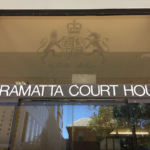Jury Trials and Defended Hearings Set to Resume in Greater Sydney

District Court jury trials and Local Court defended hearings are set to resume in Greater Sydney, after nearly four months of delays.
At the start of the pandemic last year, courthouses all over the country had to close, leaving those working within the court system with the conundrum of how to keep the wheels of justice turning, without being able to finalise contested cases.
Jury trials were, for the most part, suspended, and other court dates such as mentions (for adjournments and the like) as well as many sentencing hearings were held online via video-link, emails and telephone conference calls. Defended hearings were also paused.
But as Greater Sydney opens up, jury trials and defended hearings are both about to resume, with some changes to protect against the spread of COVID 19.
Jury trials
Jury trials will resume in District Courts on 25 October 2021.
Jury rooms have been enlarged and, in some cases, the court will seek to secure external premises for jury deliberation in order to comply with the the one person per four square metres physical distancing public health rule.
Jurors must be fully vaccinated against COVID-19, and will only be able to participate least 14 days after their second dose.
Defended hearings
Defended hearings will recommence from the beginning of November 2021.
These are court cases where a person pleads not guilty in the Local Court and the witnesses attend, give their testimony, are cross examined, the parties make submissions regarding the evidence and the Magistrate decides whether the prosecution has proven each of the ‘elements’ (ingredients) of the offence beyond a reasonable doubt.
Masks are mandatory
Masks are required to be worn by all court participants, except:
- When a court participant is addressing the court or giving evidence;
- For the purposes of in-court identification and for purposes of briefly allowing the jury to see the witness’s or court participant’s face by way of introducing the person to the jury;
- Where a court participant is unable to wear a face mask for medical reasons which must be established by a medical certificate; or
- Where there is a reason that the court considers relevant.
Rapid Antigen Screening
All court participants will undergo rapid antigen screening (RAS) at least twice-weekly, or as otherwise determined by the Sheriff of NSW.
Not vaccinated
The court announcement also says that it recognises that:
“any court participant has the right to decline to provide his or her vaccination status. The consequences of declining to provide a court participant’s vaccination status may vary and will depend upon whether the court participant consents to Rapid Antigen Testing.”
All court participants are required to fill in a declaration prior to attending court.
This information helps the courts to manage the risk of COVID-19 and facilitate the safety of all court participants under the Court Security Act 2005 (NSW), the Work Health and Safety Act 2011 (NSW) and NSW Public Health Orders.
Your lawyer will be able to explain how this process works.
Audio-visual link
In some cases, the Court may decide that witnesses can provide testimony via video-link.
Where counsel and/or solicitors decline to provide their vaccination status or evidence of such, or do not consent to RAS, the trial may be vacated and relisted on a later date.
In determining whether the trial will be vacated, the court will have regard to:
- The interests of justice;
- The vaccination status of counsel and/or solicitors who do not consent to RAS;
- The public health risk posed by the COVID-19 pandemic;
- The efficient use of available judicial and administrative resources;
- Whether counsel and/or solicitors may appear by the use of the virtual courtroom;
- Any relevant matter raised by a party to the proceedings; and
- Any other matter that the Court considers relevant.
Where an accused person declines to provide their vaccination status or evidence of such, or does not consent to RAS, the Court may vacate the trial or, on its own motion or with the parties to the proceedings consent, may make a direction that the accused person, whether on bail or in custody, appear before the Court by audio-visual link from any place within or outside New South Wales.
The parties will have an opportunity to make submissions to the Court as to whether such a direction should be made. In making such a determination, the Court will have regard to the accused person’s vaccination status, under the relevant current laws.
Support people in court
The Court is limiting the number of people who can attend court, which means that a member of the public who wants to watch a trial, or act in the capacity of support person for someone involved will not be permitted to attend the trial (unless they are a vital support person, such as someone assisting a person with a disability) and will be able to view the trial in the virtual (online) courtroom and a link will be provided upon request to the court.
Proof of vaccination status
Journalists and reporters must provide vaccination status and consent to undergo RAS.
Any attendance in person must not infringe the one person per four square meter rule, so depending on the number of people already needed in the courtroom, personal attendance may be refused. Where a member of the media declines to provide his or her vaccination status or declines to undergo RAS, attendance will be permitted by use of the virtual courtroom.
This applies to the following courthouses:
The Downing Centre; John Maddison Tower; Campbelltown; Dubbo; Gosford; Katoomba; Newcastle; Parramatta; Penrith; and Wollongong.
Review
These current rules will be reviewed during November 2021 and any changes will be communicated as required.
In the meantime, minor offences will likely be dealt with as they have been – using electronic communication to limit the number of people needing to attend court in person. If you are not sure of the procedure for your particular legal matter, you need to check with your legal representative or contact the court you are due to attend.
It is important to note that there is a significant backlog, particularly of defended hearings, which will take some time to clear, however the courts are committed to re-opening safely, to ensure that those who have been waiting to seek justice, ‘have their day in court’.







